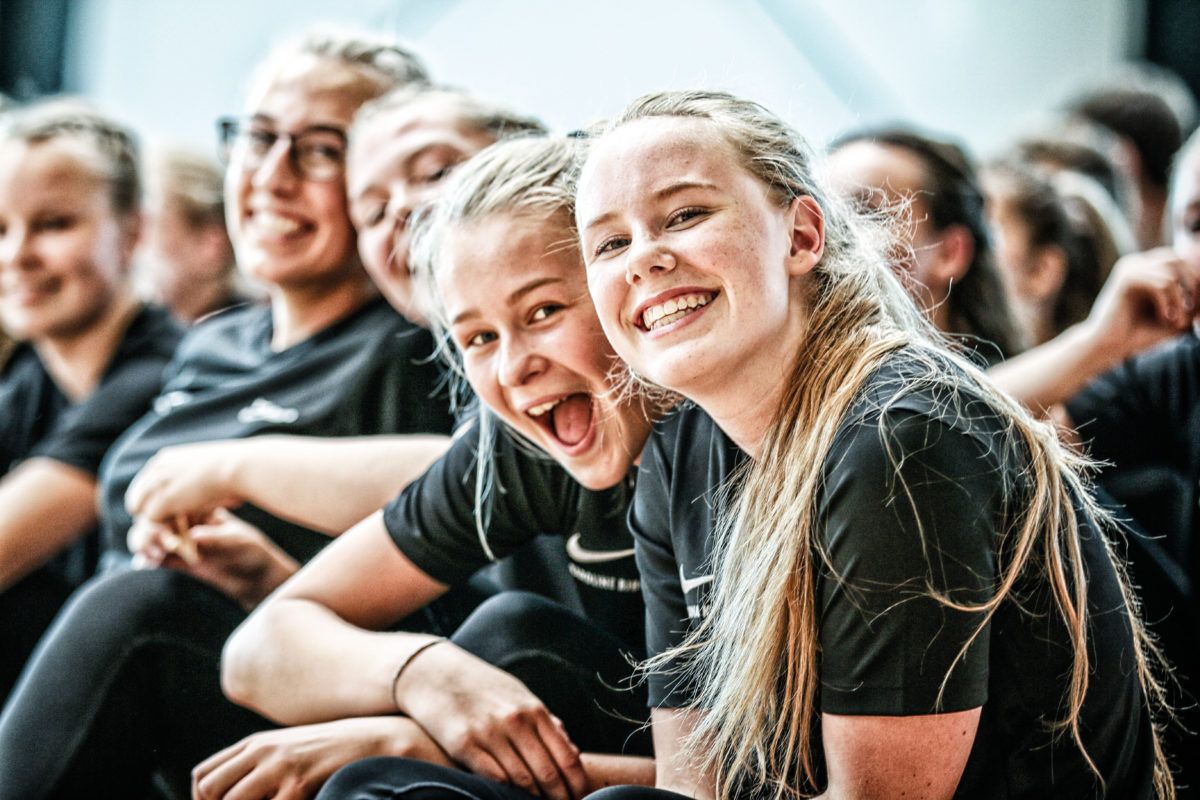Harry Potter famously catches the Hogwarts Express from Platform 9 and three quarters, and John Cusack’s character in ‘Being John Malkovich’ finds work on the seventh-and-a-half floor, but did you know that Denmark has its own fractional curiosity.
Every year, around 30,000 students in Denmark embark on their ninth and a half grade – a full year of both academic and vocational pursuits at an independent boarding school called ‘efterskole’. The majority are recent public school leavers aged 16-17, but some can be as young as 14.
While the fees will set back parents between 50,000 and 100,000 kroner for the full year depending on their financial situation, there are also substantial state subsidies to ensure the year is one the students will never forget.
Wide choice of subjects
Denmark’s first efterskole was founded in 1879 in Galtrup, Mors. Two pioneers in Danish education, Christen Kold and NFS Gruntvig, agreed it would be beneficial to students’ personal development, and the schools would be in line with their belief that education should be geared to producing fully-rounded human beings and not just book learning by rote.
Today there are around 250, and a good handful are international. However, many efterskoles are open to foreign students, and some even have international departments. The self-governing institutions vary wildly in size from 25 to 500 students, although most of them have a minimum of around 100 students.
Unlike regular schools, the relationship between teacher and student is far closer, as they are together all day – and part of the night if the students behave like Harry and his friends!
There is a far wider choice of academic subjects, although these vary in accordance with the school’s political, religious or pedagogical orientation, and since the 1980s some schools have specialised in specific areas, such as sport or music, or catering to students with particular needs, such as those with dyslexia or even late-developers.
Immersive experience
The children are expected to spend the entire week at the efterskole, but are free to leave over the weekend. However, most require them not to leave for the first fortnight, whilst foregoing their mobile phones, in order to embed them into the style of living.
Parents not used to being apart from their children have ample access to the supervisory teachers, who are likely to make telephone calls to update them on progress or discuss issues.
The students are encouraged to take part in many activities outside their academic pursuits, learning and enhancing life-long skills in sport, cooking, boardgames and maybe even music and drama.
Whilst in the classroom they have the opportunity to vastly improve their proficiency in a language (across the country, a wide range is offered) or a subject not hugely focused on at public school, such as history, science and geography.
Simulator to … Judgement Day
Take advantage of the efterskole open day on September 27 and visit as many as you can
No, Efterskole Day (Efterskolernes Dag) is not the day after school ends. Or indeed an apocalyptic thriller or afterlife drama in which education ceases to exist – cue a softened, creepier version of Alice Cooper’s screeching vocals: School’s out forever!
Instead it is a day when it is possible to find out more about the uniquely Danish educational establishment by visiting one in person.
Of course, this can be arranged on most days, as the schools will always want to attract new students, but Efterskole Day is open house time: the welcome mat is very much beckoning you in, and everything is geared towards giving you a good impression of the school.
It’s a chance for parents and prospective students to look around and, who knows, maybe Junior might even run into some future class-mates.
Plot your route carefully
However, this year Efterskolernes Dag 2020, which is scheduled to take place on Sunday 27 September, will exercise restraint in light of the ongoing coronavirus concerns.
In previous years, all schools were open from 13:00 until 17:00, but there are no guarantees this time around.
This will make meticulous planning more important than ever, as parents and students plot zig-zagging routes across the country in order to take in as many as possible.
It will be necessary to check the individual website of every efterskole on the wish list to ensure they are open when you visit.
Distancing measures
The efterskole association Efterskoleforeningen in collaboration with the Sundhedsstyrelsen health authority wants to ensure that Efterskolernes Dag is run in adherence to its recommendations and advice in relation to the risk of corona infection.
The after-schools vary in terms of their location, size and decor, and the authorities’ recommendations and advice will vary from school to school.
Some of the schools will accordingly divide the day into time intervals and require you to sign up for a specific time.
Others might restrict the number of people who can visit in a group to just the student and parents.
Best to check before
Again, it is best advised that you visit the website of the respective school to find out what it requires.
Remember that there will be other times to visit, but that no day in the year affords you the chance to visit as many on one car journey.
Efterskole Day may sound portentous, but for many young people it often proves to be the first day of the rest of their lives.














